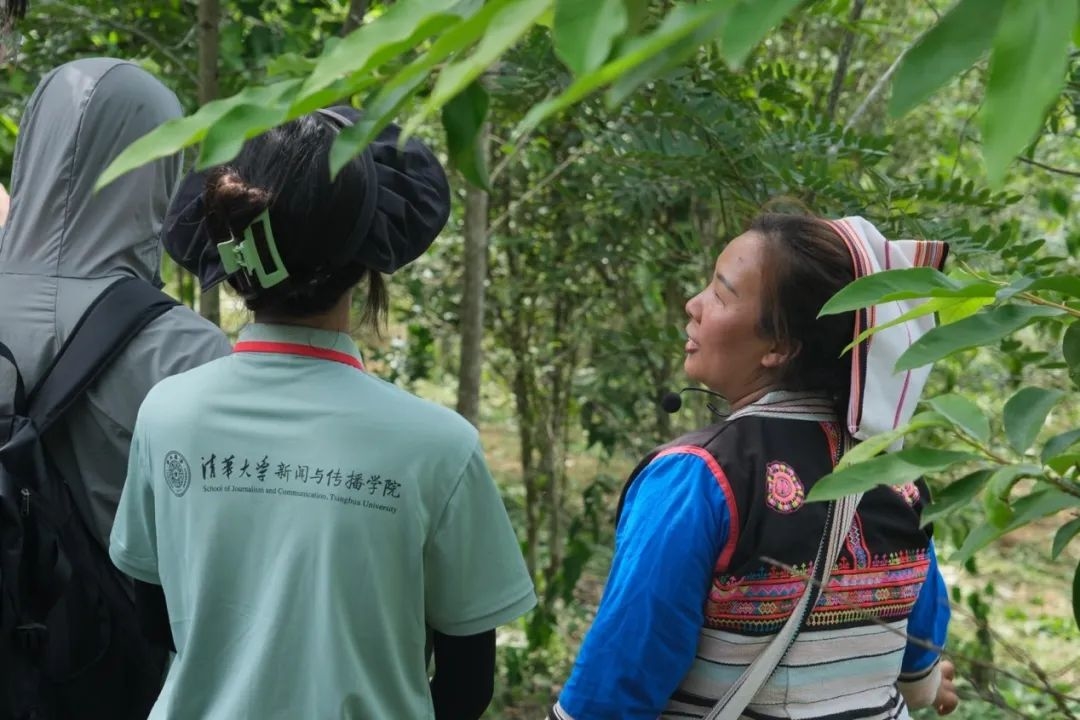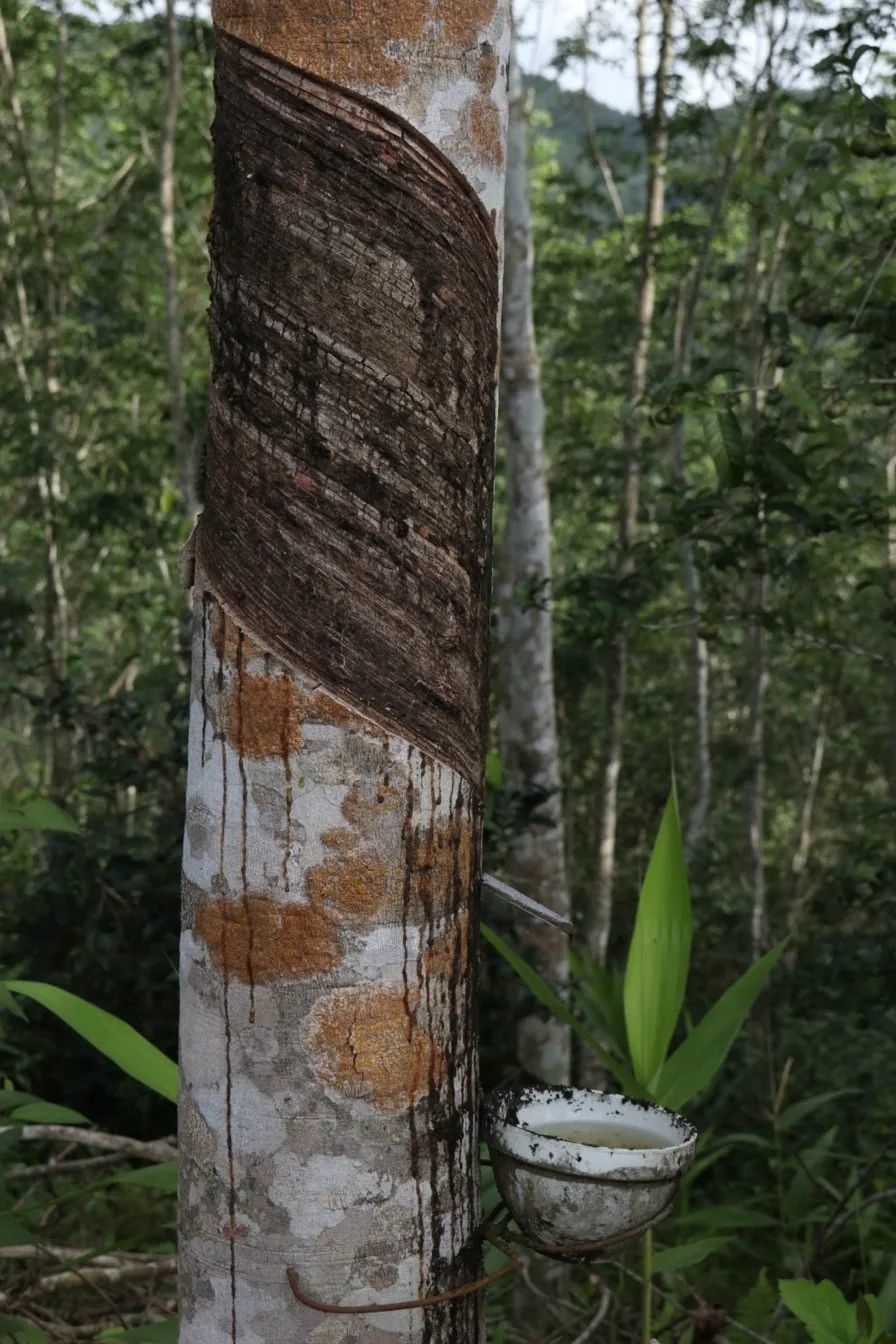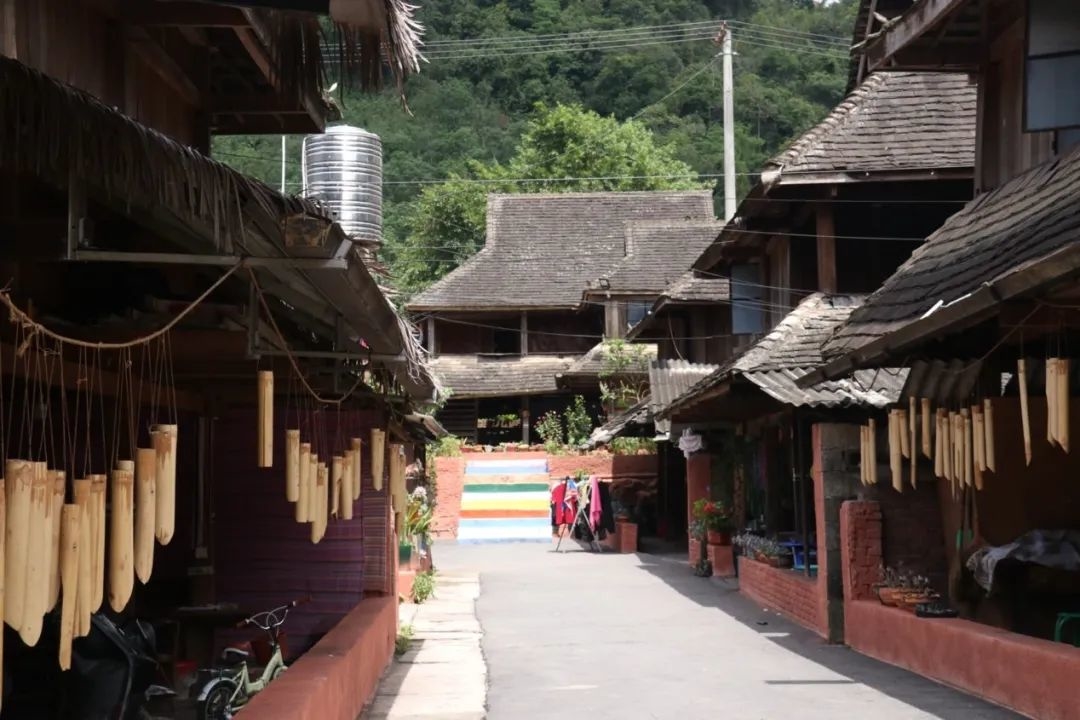15
2023.08
“Reforestation is a giant project for forty to fifty years. It’s a coming benefit as well as a job for our descendants, and even their descendants,” Bulu Du pointed to the standing five-year-old dwarf trees on a slope.
As a coordinator for Xishuangbanna Tropical Rain Forest Conservation Foundation, a local villager from Jinuo County, Bulu Du introduced to visitors that villagers with rubber woods were encouraged to plant other trees instead.

Bulu Du standing in front of the replanted woods
(Photo by Zang Linxi)
In a mountainous area with tropical forestation, the abundance of natural resources in Jinuo does not represent a preferable condition for growing food crops. Jinuo used to develop its agriculture in a damaging way. But now, the circumstances are gradually changing due to the combined effort of society.
Jinuo’s main agricultural products are tea leaves and raw rubber.
It has a long history of planting tea. Prices of tea leaves can vary from 20 yuan per kilo to even seven to eight thousand per kilo, a local public servant from the government of Jinuo County, Bai Xin said. But the scale and quality of the tea industry in the village are restricted by cultivation skills and processing techniques.
Rubber plantation dated back to 1973, a 64-year-old villager Bao Bulu recalled. But rubber plantations brought severe damage to the environment. Bao said that rubber had a high demand for water, so other plants lacked essential conditions to grow.
Also, it segmented the original forests. “Years ago, wild elephants paid random visits because of a suitable environment,” Bao said, “but now scenes like that are accordingly rare.”
At the same time, during the last decades, rubber prices had a great drop, making it much harder to make money. Nowadays, a rubber grower can merely make an average of less than ten yuan, about one and a half dollars, for a rubber tree per month.

Bulu Du standing in front of the replanted woods
(Photo by Zang Linxi)
When the government and society were aware of this issue, actions were taken to make changes.
Bao is also one of the villagers who joined the reforestation program. “For a man of my age, eyesight is too poor to collect rubber, and time to manage rainforests is much less.” He and his wife also run a grocery shop in the new village at the foot of Jinuo Mountain.
So far, Bao’s income consists of grocery profits, rainforest management fees, and crop growing. Management fees are 60 yuan per plant a year. Family’s total income can exceed previous gains, Bao said.
The program is looking at a further blueprint. But challenges may also lay in the way.
The efforts so far are still minor in comparison. In the past years, a total of 503 acres of restoration area has been completed. Yet the planting area of tea in Jinuo County is more than 28 thousand acres while the planting area of rubber is over 181 thousand acres.
Bulu also admitted that the foundation will need to collect more money to renew the current ten-year contract. Bai said that the government is “making every effort”, such as participation in coordination and policy support, but lacks the financial ability to help.
Combining public welfare and business development is important for community livelihood for a rejuvenating village like Jinuo. Its villagers are also seeking to diversify their means of making a living.
When a hiking lover searches for recommended routes in Xishuangbanna on Chinese social media, one would see a list topping Jinuo Mountain. Situated among rainforests, Jinuo is praised as “hiking like reading an encyclopedia of nature.”
In high seasons such as summer vacations, Jinuo can host hiking visits for as many as five hundred people. Local villagers can work as tourist guides, earning more money apart from working in the tea fields or rubber woods.

The new village of Jinuo, with clean streets and painted walls
(Photo by Peng Xinyi)
Small restaurants and hotels of Bulu’s relatives are here in the village with carefully painted walls. On an afternoon in July, women, children, and the elderly are serving in the shops while farmers are away in the fields.
Other than rainforest hiking and rural tourism, Bai is also mainly counting on upgrading tea quality for making income for villagers.
“With the management fee alone, it is difficult for villagers to meet their living needs,” Bulu said, “We are also expecting more actors, such as tourists, research groups, and responsible enterprises to come here and help the villagers to do more things.”
Writer | Peng Xinyi
Design | Lin Yuxuan

2025.12.16 15:15
16
2025.12
16
2025.12
16
2025.12
 28:32
28:32
2025.06.19 08:55